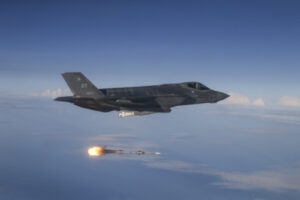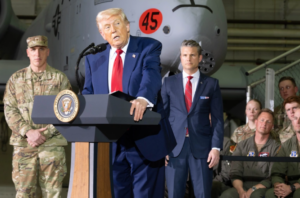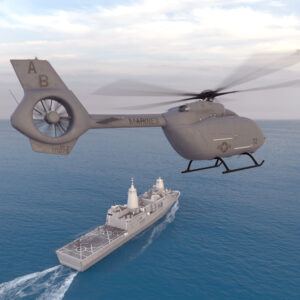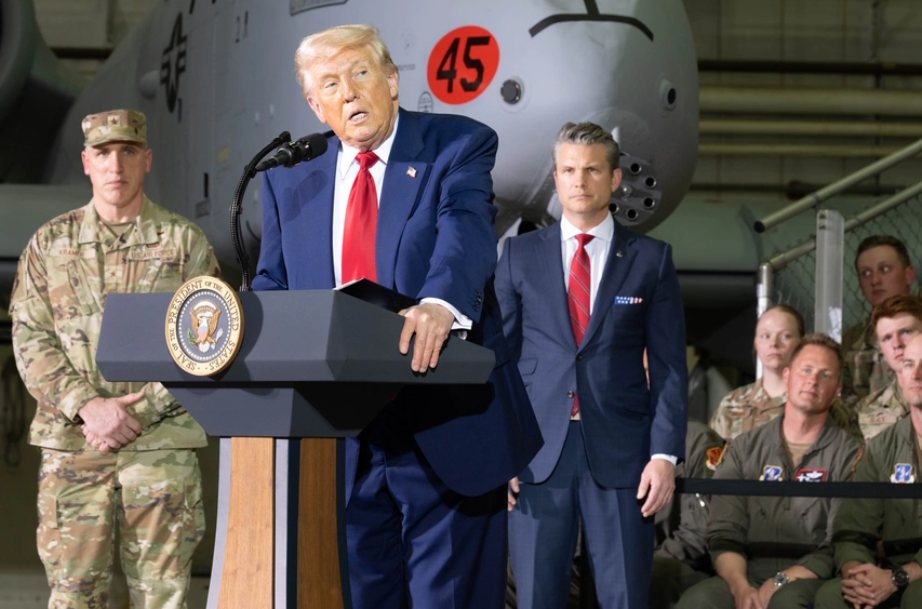Defense Daily
-
 Uncategorized
UncategorizedFlight Test For W87-1 Planned For Next Calendar Year, Sandia Says
A non-Sentinel flight test for the W87-1 warhead is planned for next calendar year, a spokesperson for Sandia National Laboratories told sister publication The Exchange Monitor in an email Monday. “Even […]
-
 Uncategorized
UncategorizedSavannah River Pit Facility Design 90% Complete in 2026, NNSA Exec Says
James McConnell, acting principal deputy administrator for the National Nuclear Security Administration, said the design for the Savannah River Plutonium Processing Facility in South Carolina should be 90% complete in […]
-
 Advanced / Transformational Technology
Advanced / Transformational TechnologyMaven Makes Its Way Into U.S. Transportation Command
ST. LOUIS—U.S. Transportation Command recently began using an artificial intelligence platform to improve its operational awareness in the areas it provides global logistics and transportation services, the command’s intelligence chief […]
Tagged in: -
 Unmanned Systems
Unmanned SystemsUltra Maritime and General Atomics Partner For Anti-Sub Offerings
General Atomics’ Aeronautical Systems Inc. (GA-ASI) and Ultra Maritime on Tuesday announced a new partnership to aid anti-submarine warfare (ASW) tracking by combining an unmanned aerial system with low-power sonobuoys […]
Tagged in: -
 Advanced / Transformational Technology
Advanced / Transformational TechnologyNGA Developing New Project Around Non-Standard Mission Planning
ST. LOUIS—To better exploit data collected from uncrewed systems, the National Geospatial-Intelligence Agency (NGA) has initiated a new project focused on commercial analytics to better serve its mission partners, an […]
Tagged in: -
Wednesday, May 21, 2025
- Trump Announces Golden Dome To Cost $175 Billion, To Finish Within Three Years
- Allvin: F-47 Development ‘Can Come at the Speed of Software, not Hardware’
- Airbus Details Second ALC Program Demo, L3Harris Providing Unmanned Lakota’s ‘Digital Backbone’
- CBP Upgrading Mobile Surveillance Systems With Radar From SRC To Improve Border Security
- Kilby, Strategic Systems Lead Weigh ‘Alternatives’ For SLCM-N
- SRC Details New R1430/1440 And R1540 Multi-Mission Radars
- First Production Unit of B61-13 Gravity Bomb Complete, Pantex Says
- USAF, Anduril, General Atomics Market CCA
- NGA Close To Operational Use Of New GEOINT Tasking Tool For Combatant Commands
- U.S. Space Force to Field CCS Meadowlands
-
Wednesday, May 21, 2025
- Trump Announces Golden Dome To Cost $175 Billion, To Finish Within Three Years
- Allvin: F-47 Development ‘Can Come at the Speed of Software, not Hardware’
- NGA Close To Operational Use Of New GEOINT Tasking Tool For Combatant Commands
- Airbus Details Second ALC Program Demo, L3Harris Providing Unmanned Lakota’s ‘Digital Backbone’
- SRC Details New R1430/1440 And R1540 Multi-Mission Radars
- USAF, Anduril, General Atomics Market CCA
- Kilby, Strategic Systems Lead Weigh ‘Alternatives’ For SLCM-N
- First Production Unit of B61-13 Gravity Bomb Complete, Pantex Says
- CBP Upgrading Mobile Surveillance Systems With Radar From SRC To Improve Border Security
- U.S. Space Force to Field CCS Meadowlands
-
 Missile Defense
Missile DefenseTrump Announces Golden Dome To Cost $175 Billion, To Finish Within Three Years
President Trump and Secretary of Defense Pete Hegseth on Tuesday announced key details of the planned Golden Dome missile defense architecture, with an expected total cost of $175 billion, timeline […]
Tagged in: -
 Navy/USMC
Navy/USMCAirbus Details Second ALC Program Demo, L3Harris Providing Unmanned Lakota’s ‘Digital Backbone’
Airbus U.S. said Tuesday it recently completed a second demo to inform its work on the Marine Corps’ Aerial Logistics Connector (ALC) program, which follows a recent announcement it’s working […]
-
 Space
SpaceU.S. Space Force to Field CCS Meadowlands
The U.S. Space Force Counter Communications System (CCS) 10.3 Meadowlands received fielding approval on May 2 after Space Force accepted delivery of the first two systems from builder L3Harris Technologies […]
Tagged in:

